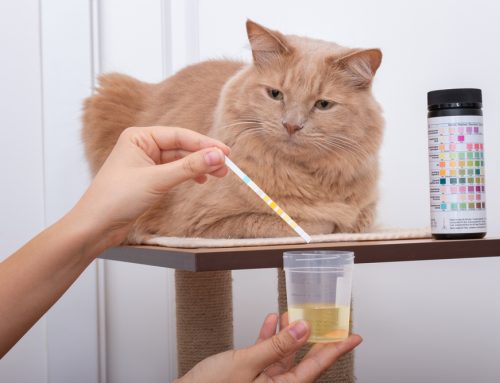Heartworm disease is a relentless and potentially life-threatening threat to pets everywhere. As spring arrives and temperatures rise, so does the likelihood of your pet’s exposure. Here’s everything your trusted Midtown Veterinary Hospital team wants you to know about this dangerous, persistent, and nearly invisible enemy—including how to protect your pet.
#1: Heartworm disease has been diagnosed in pets in all 50 states
Over the past 20 years, heartworm disease, which is transmitted by infected mosquitoes, has grown from its southeastern U.S. origins to become a nationwide pet health threat, and is now confirmed in all 50 states, including Alaska and all along the northern border. This rapid, wide-spread progression is caused by climate change, altered wildlife migration patterns, and increased transport of heartworm-infected pets (e.g., rescue and shelter pet relocation).
Only one mosquito bite is required to transmit heartworm disease to an unprotected pet—making year-round heartworm prevention an absolute necessity for dogs and cats everywhere.
#2: Cats get heartworm disease, too
Many pet owners recognize heartworm disease as a canine health concern, but cats are equally vulnerable. However, because cats are not a natural heartworm host, they show different disease signs (e.g., similar to asthma or a respiratory condition) or may not show signs at all.
Unlike dogs, cats can naturally clear larval heartworms from their circulation, preventing these juvenile parasites from reaching their full adult size, which can be up to 12 inches in length. Sadly, because the cat’s heart is small, as few as one or two adult worms can be life-threatening.
#3: Heartworm disease is a year-round pet threat
Although a mosquito’s whine is seldom heard during the dead of winter, it does happen. Mosquitoes are most active during warm, humid weather, but they sometimes emerge from hibernation on mild winter days or during early spring and feed on your unsuspecting pet. Other mosquitoes may spend their winter in your basement or garage, making your dog or cat an easy and available target for the next blood meal.
Pausing your pet’s heartworm prevention during cold weather months can leave them vulnerable to infection, especially if you forget to resume their preventives in the spring. And, because most preventives include broad-spectrum dewormers, missed doses can increase your pet’s risk for intestinal parasite infections, such as roundworms and hookworms.
#4: Heartworm disease signs in pets can take up to seven months to appear
You cannot rely on visible signs to identify or address heartworm disease in pets. By the time signs appear—and they often do not appear at all in cats—the infection is well-established and already wreaking havoc on your pet’s circulatory system, which is another reason why prevention is so critical for all pets.
Unless your pet is screened for heartworm disease, visually detecting their illness is almost impossible.
And, once you can see signs, which can include persistent cough, fatigue, exercise intolerance, collapse, loss of appetite, abdominal swelling, weight loss, and sudden death, complications are common.

#5: Heartworm treatment is expensive and intense for dogs, nonexistent for cats
Although heartworm disease is treatable for dogs, the treatment is costly, time-intensive, and not without significant risks. Dogs who receive an early diagnosis generally enjoy more favorable outcomes and more successful recoveries. Clinically sick dogs can be cured, but often experience permanent lung or heart damage that may affect their quality of life.
Unfortunately, no safe heartworm disease treatment exists for cats. If your cat is diagnosed with heartworm disease, your Midtown Veterinary Hospital veterinarian will recommend supportive care and careful observation to ensure your cat’s comfort and minimize heartworm damage. In some cases, cats can clear their infection on their own or outlive their resident adult worms. Sadly, sudden unexplained death is a common outcome.
#6: Heartworm prevention for pets is simple, safe, and effective
Heartworm preventives work by eliminating circulating microfilariae before they can mature into dangerous adult worms. Consistent year-round dosing is essential to prevent dangerous gaps. Preventives are available in monthly, topical, and oral formulas to suit pet preference and owner convenience. Long-lasting injectable preventives that provide 6 or 12 months of continuous and effective protection are available for dogs.
Additional preventive measures include:
- Annual heartworm testing for dogs — Yearly heartworm tests detect hidden disease that may occur because of missed or failed preventive doses.
- Environmental management — Remove standing water around your home to deter mosquito populations.
- Repellent products and sprays — Some topical flea and tick preventives include a mosquito repellent. Pet-safe sprays can be applied to your pet’s coat to deter mosquitoes and other pests.
#7: Midtown Veterinary Hospital has everything you need to protect your pet
As an American Animal Hospital Association (AAHA)-accredited hospital, Midtown Veterinary Hospital is dedicated to providing the highest level of patient and client care. Our trusted team will provide everything you need to safeguard your pet from heartworm disease:
- Veterinarian — Our veterinarian will recommend the best products and prevention plan for your pet.
- Veterinary technicians — Our veterinary technicians will provide one-on-one coaching and heartworm education.
- Client service representatives — Our client service team will send you timely refill and wellness care reminders to ensure comprehensive year-round coverage for your beloved pet.
If your pet isn’t currently on heartworm prevention or is overdue for a heartworm test or other wellness services, take action—schedule an appointment at Midtown Veterinary Hospital.






Leave A Comment